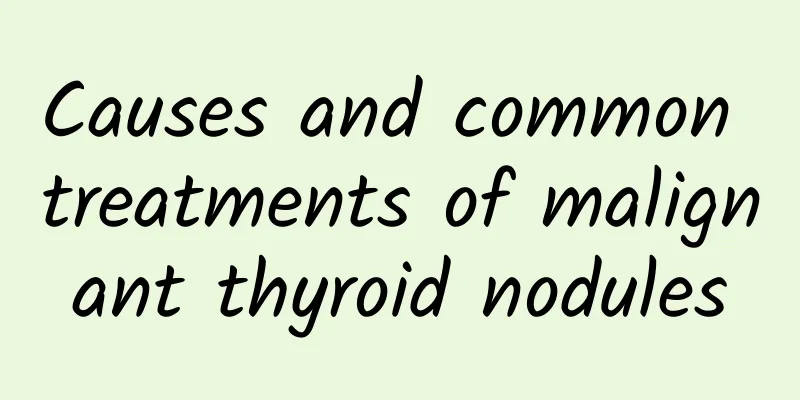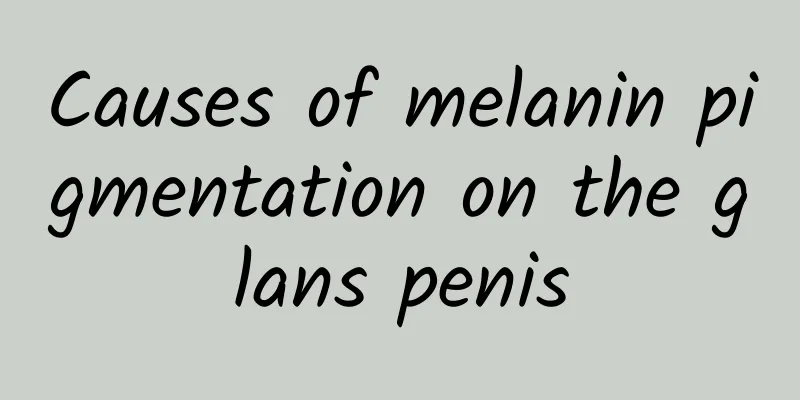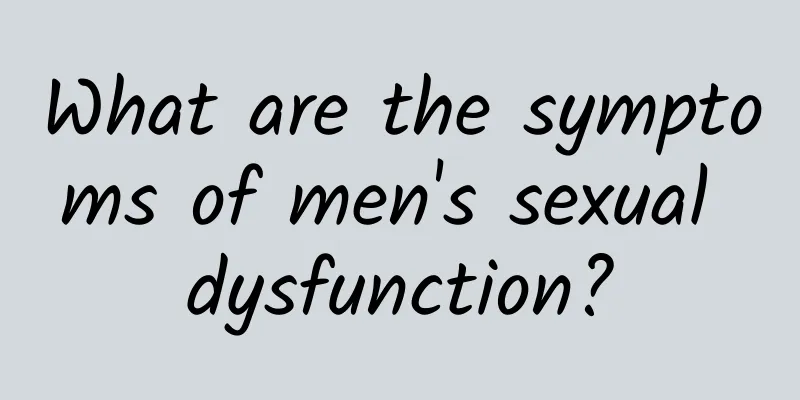Causes and common treatments of malignant thyroid nodules

|
Generally speaking, if a thyroid nodule is diagnosed as malignant, it will cause greater harm to human health. So, how do malignant thyroid nodules appear? Causes of malignant thyroid nodules: 1. Oncogenes and growth factors: Modern studies have shown that the occurrence of many animal and human tumors is related to the overexpression, mutation or deletion of oncogene sequences. 2. Ionizing radiation: It has been found that external radiation to the head and neck is an important carcinogenic factor for the thyroid gland. 3. Genetic factors: Some medullary thyroid carcinomas are autosomal dominant genetic diseases; in some thyroid cancer patients, family history can often be inquired. 4. Iodine deficiency: As early as the beginning of the 20th century, some people had proposed that iodine deficiency could lead to thyroid tumors. 5. Estrogen: Recent studies suggest that estrogen can affect the growth of the thyroid gland mainly by inducing the pituitary gland to release TSH, because when the estrogen level in the plasma increases, the TSH level also increases. As to whether estrogen directly acts on the thyroid gland, it is still unclear. Common treatments for malignant thyroid nodules: Endocrine therapy Patients who have undergone subtotal or total thyroidectomy should take thyroid hormone tablets for life to prevent hypothyroidism and inhibit TSH. Both papillary carcinoma and follicular carcinoma have TSH receptors, and TSH can affect the growth of thyroid cancer through its receptors. The dosage of thyroid hormone tablets should be adjusted according to TSH levels, but there is still a lack of sufficient and effective data to support the precise range of TSH inhibition. Generally speaking, for patients with residual cancer or high-risk factors for recurrence, TSH should be maintained below 0.1mU/L; however, for disease-free patients with low risk of recurrence, TSH should be maintained near the lower limit of normal (slightly higher or slightly lower than the lower limit of normal); for low-risk patients with positive laboratory tests but no organic lesions (positive thyroglobulin, negative imaging), TSH should be maintained at 0.1-0.5mU/L; for patients who have been disease-free for many years, their TSH may be maintained within the normal reference value. Levothyroxine sodium tablets (Euthyrox) can be used, 75ug-150ug per day, and blood T4 and TSH should be measured regularly, and the dosage should be adjusted according to the results. Radionuclide therapy (131 iodine therapy) For papillary carcinoma and follicular carcinoma, the postoperative application of iodine is suitable for patients over 45 years old, those with multiple cancer foci, locally invasive tumors, and those with distant metastases. It is mainly used to destroy the residual thyroid tissue after thyroidectomy, which is beneficial for reducing recurrence and mortality in high-risk cases. The purpose of iodine treatment is: ① to destroy the hidden microcancer in the residual thyroid; ? to easily use radionuclides to detect recurrence or metastatic lesions; ③ to increase the value of using thyroid globulin as a tumor marker during postoperative follow-up. |
<<: What are the clinical manifestations of vascular nodules? How to treat them?
>>: There are three main causes of thyroid lymph nodes.
Recommend
Male with acute dysplasia
Condyloma acuminatum is a very common complicatio...
Penis lengthening surgery
For men, the penis is a very important organ, bec...
What medicine should men take for sweating?
The pressure of life is getting bigger and bigger...
Why do men suffer from back pain and what can they do?
Nowadays, most work is done in front of a compute...
The glans penis is turned out and it hurts when touched
In life, many men have problems with glans sensit...
What are the dangers of ejaculatory duct obstruction?
Men with normal sexual function will ejaculate af...
What causes scrotitis? The cause of scrotitis
I believe that men are not unfamiliar with the di...
Methods of diagnosing and treating premature ejaculation symptoms
Premature ejaculation is a common male disease in...
What causes painful urination in men?
When you urinate, you will feel pain in the ureth...
Why do men grow chest hair? What should I do if I have chest hair?
On men, the appearance of chest hair is often con...
How do men train their abdominal muscles?
Nowadays, men pay more attention to their bodies ...
4 belly fat loss methods for men
Men can have no abdominal muscles, but they must ...
Foods That Boost Testosterone Levels
Testosterone is an important factor related to sp...
What are the dangers of ejaculating too often?
Generally speaking, after marriage, many men are ...
Does premature ejaculation affect fertility?
The reason why women get pregnant is that the sem...









